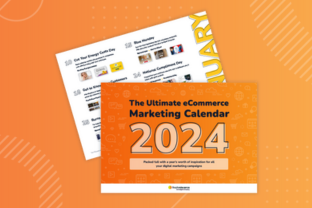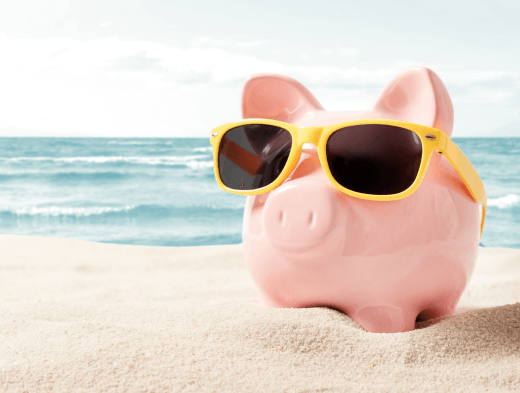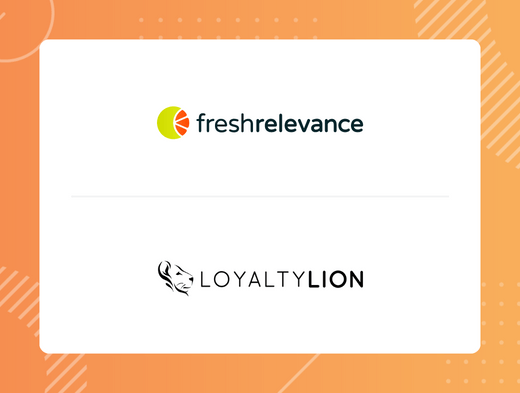Black Friday has been an established online and high street shopping event for many years now, but with online shopping behavior evolving so substantially over the past two years, the effect on peak season is becoming more apparent. We’ve analyzed data from Fresh Relevance clients to uncover what happened on and around Black Friday 2021.
Web Traffic
There is usually a big spike in web traffic on Black Friday, and then a second on Cyber Monday. The story this year however is a bit different:
Black Fri-week
Traffic started climbing early in the week as retailers brought out their deals and offers early. There was still a peak on Black Friday itself with traffic at 162% of normal volume as consumers sought out offers, but this was less significant than it has been in previous years.
What happened to Cyber Monday?
Traffic on Cyber Monday wasn’t the usual second peak that we’ve seen in previous years: there was actually marginally more traffic on Thanksgiving Thursday than there was on Cyber Monday. This is likely because of how early the offers started, as by Cyber Monday online shoppers had already had plenty of opportunities to make their purchases.
After the event
The week following Black Friday saw traffic fall below the levels it had been even in the 3 weeks leading up to Black Friday. This pattern is consistent with previous years, as consumers take a break from spending to enjoy their parcels arriving before the last minute Christmas shopping kicks in.
Revenue
The online revenue of Fresh Relevance clients helps us dig a little deeper into the spending patterns and online shopping behavior happening over Black Friday weekend.
Revenue vs traffic
Revenue on Black Friday was at around 350% usual online revenue. This is a significantly larger increase than the increase of traffic to Fresh Relevance clients. This suggests that consumers may not be spending a lot of time browsing different websites and checking out offers, but are visiting sites that they likely usually purchase from, with the intention of purchasing. Cyber Monday also makes more of an appearance where revenue is concerned than it did in terms of web traffic, at 233% online revenue compared to 139% web traffic. The difference between traffic and revenue again implies that consumers are shopping with purpose over this weekend.
Was the story different for different industries?
Yes, some industries saw a much more significant lift in revenue than others. The beauty industry was the star of Black Friday, at over 8x usual revenue on the day itself. Luxury retailers saw revenue climb to 462%, and apparel and sports also saw their revenue climb to over 300%. Technology, gifts and hobbies also performed well, more than doubling their usual revenue on Black Friday itself.
The travel and home & garden industries saw the least amount of lift over Black Friday and the weeks surrounding it. For the travel industry, which doesn’t get as involved in Black Friday offers most years anyway, this may well be a result of an increase in social distancing and international travel restrictions. For home & garden, there is likely more of a seasonal factor.
Taking a broader look at the revenue patterns either side of Black Friday itself, apparel saw the most consistent rise in revenue leading up to the weekend itself, with revenue also declining less significantly, staying fairly levelled out. Beauty saw a much sharper rise in revenue close to Black Friday weekend, but ended below apparel, luxury and gifts & hobbies by the end of the following week.
Email marketing
From Black Friday to Cyber Monday, there was an increase in email conversion rates for both cart abandonment emails and browse abandonment emails.
Cart abandonment email conversion rate increased by 25%. With more shoppers visiting sites and adding items to carts than usual, cart abandonment emails proved to be even more effective than usual at cutting through the noise and bringing shoppers back.
Browse abandonment email effectiveness almost doubled throughout Black Friday weekend, with their conversion rate increasing by 93%. As consumers visited various sites and browsed products, browse abandon identification and subsequent emails to bring people back to the items they’d been browsing was an extremely effective tactic.
Key takeaways
- Peak season shopping has followed slightly different patterns in 2021 when compared to previous years.
- Revenue increase was more significant than traffic increase, which indicates that consumers were waiting for Black Friday to purchase from brands they already know and are loyal to, rather than browsing around lots of sites.
- All industries saw a slight increase in revenue over Black Friday weekend.
- Triggered emails were even more effective over Black Friday at turning browsers into buyers.
For more Black Friday content, check out our favorite Black Friday emails and our 6 top tips for preparing for the big day.






